Going through a career transition process can be very stressful. Sometimes it may feel like being in a roller coaster. It goes up and down very fast, with short moments of stability, full of intense emotions and uncertainty.

Whether your position was eliminated or changed due to company restructuring and now you need to find a new job; or you have recently moved to a new country and need to find opportunities in a market that you are not familiar with; or you have decided to leave a job to pursue new areas that are more aligned to your values and passions. Whatever your case may be, the uncertainty and pressure of career transition bring anxiety, concerns, and stress to most human beings.
Leaving aside the more traditional actions related to job search (Resume, LinkedIn, Target Market, Interviewing, Financial Planning, etc.), I share with you here 5 ideas that can change your experience and reduce your level of stress during times of transition:
1 – Establish a routine for yourself, and take action!
Assuming you have initially taken some time off to rest and reflect upon the events/changes that happened (I strongly recommend you take at least a few days for that), and that you have defined your career objectives, it is time to start the process!
You may or may not like having a formal structure to your routine. During career transition, I find that the more organized and structured you are, the less stressed you will feel about the things you are doing, not doing, or believe should be doing. Making a weekly schedule to ensure you dedicate enough hours every week to your job search makes the process smoother and more productive. We typically suggest a minimum of 30 hours/week dedicated to your search, with a high percentage of that time being focused on networking initiatives.
The structure of having a routine and following it with concrete actions will decrease the stress, as for many human beings the stress comes more from the “thinking” about what needs to be done, versus the “doing” it. You may want to be specific in terms of the types of activities included in your search time: networking, job hunting, trainings, meetings, etc. Think creatively about the resources you have available, such as connections, tools, and skills.
Remember to include in your schedule time for family, friends, hobbies, sleep, exercise, and other things that may be important to you. If you had a routine of exercise while working (we all know the benefits of physical activity in our system), maintaining it now would just serve you really well. If you have a meditation practice or any kind of spiritual routine, that will certainly be helpful too.
I have seen clients who have children and decided to dedicate time every morning of their new routine to take the kids to school. In many cases, they have never done such thing before as they used to get in the office very early in the morning. Take this opportunity to do things you have not had the chance to do before, which may bring you some fulfillment.
Reflect on where your focus should be and how other activities will fit in. Most people find that keeping weekends off for leisure and family is the best alternative during career transition. Why not? You deserve it!
2 – Be your own leader! Use this time to learn and to acquire new skills.
From a personal development standpoint, this time may bring you an opportunity for inner reflection (what I like to call, your “soul search”). You may want to do this by yourself or with the help of others. You can revisit your values, purpose, motivators, beliefs, talents, passion. Have you ever thought about your life purpose? What is the reason to exist? What drives you? What is most important for you now? What has changed? What are the things that need to be present in life now, and what can you let go of? How do you connect with other people? These are just a few questions to think about. In today’s time, people are realizing the importance of finding purpose in the work they do, and connecting their own purpose with their professional activity. How important is that for you?
Many people acknowledge that during their busy working lives, they do not have the time to look outside their companies, to study market trends and get in touch with new things in their field. So this may be an opportunity to set some time in your schedule for learning. Whether you are going for a formal certification (always a good idea!), study on your own or take classes, remember the importance of keeping yourself up to date with your market and field. Check new books, learn about people who are reference in the area, enhance your toolbox with new skills. That may help you land in a better position, to be successful in formal nterviews or in any exploratory conversation, and to feel more confident. As many people say, it is your career, so you drive and lead to whichever direction you decide to go!
Nowadays you can find a lot of online trainings and free webinars. You can purchase “used” materials for lower prices, or join different groups online that share knowledge and ideas amongst themselves. If you can’t afford to invest in a formal training or course, be creative and use the resources and technology available!
During transition, I usually suggest a reflection on the lessons learned from your previous work experiences. Understanding your strengths, what differentiates you, what makes you strong in your field of work can be very useful. There are strengths assessments available in the market (some even free) that you can take to help in this process. Analyzing 360 reviews and feedback you received can also bring some insights to this process. In this context, it is also important to reflect upon the things that you want/need to develop to be more successful, or to make the career shift you desire. There may me some technical things or knowledge you decide to pursue, or most commonly, some behavioral changes (or soft skills) that you want to revisit. These are important reflections, as you have in your hands the moment and the opportunity to change and transform!
As Marshall Goldsmith wrote in the title of his book in 2007, “What got you here, won’t get you there”. Market dynamics change, technology reshapes the way we work, new skills become relevant (and others irrelevant), and diversity is the name of the game! There is a need to adapt and change, constantly, as we are always in movement. If we get comfortable with what used to be important, we won’t be fully connected with the possibilities of the present and future, missing the opportunity of learning and growth.
3 – Engage in some type of professional activity that will bring you fresh perspectives!
The FreshBiz Game, created by Ronen Gafni and Simcha Gluck, also authors of the book “The New Entrepreneurz, changing the way you play life”, bring us several interesting concepts related to the new economy and the new business mindset. One of them talks about how human beings are multi-dimensional and not only professionals in one field of work. Remember your different dimensions: parent, runner, food lover, software engineer, entrepreneurial, etc. Explore and value all the dimensions of your life. Take this opportunity to review them, add new ones, and bring them more active to life!
I have noticed that the people who go through career transition and are engaged in some type of professional activity or project feel less pressured and more engaged in the whole process. I have seen clients who have decided to take on small consulting gigs during this time and have used this opportunity not only to learn new things, but to increase their network. In some cases, these initiatives lead clients to identify new fields of work. If consulting is not for you, this could be a volunteer activity in your community (if you don’t know where to start, you can check LinkedIn for volunteer work, or research with your local community). Some clients decide to help a friend or former colleague with entrepreneurial projects (for example, helping develop their website, advising on business plans, or any other area where you believe you could use your skills and expertise).
Engaging in such activities can also open yourself to think about other plans (plan b, plan c) in terms of what you can do professionally. If job search is your priority, you just need to ensure the activity will not take you away from your main goal, so time commitment may need to be reviewed carefully.
Finally, another concept that I love from the FreshBiz Game: Entrepreneurial Thinking is our ability to transform ideas into actions. We don’t need to open new businesses to have/develop entrepreneurial thinking. Reflect about this and how you can apply this concept to your career change, job search, or to your life during this transition time. How are you expressing yourself in this process? What it is like to be the leader of your own journey? What ideas do you have? What actions will you take? How will you be effective in doing it? What resources will you rely on? What game are you playing?
4 – Connect with people!
Quite often we see people frustrated with the lack of success they face during their job search efforts. In most cases, the pattern is that they are not having much human interaction, or don’t have networking strategies in place. Instead, they are keeping themselves busy at home, behind computers, checking and applying to open positions in job boards and websites.
Whether you are in a formal outplacement program and have the support from an organization, or you have hired a career coach, or you are working on your own, it is critical to interact with people throughout the process. This can be done through individual conversations, group meetings, events, workshops, or other social gatherings. We know social media is nowadays a key tool for that (and LinkedIn is effective in connecting professionals), but it does not replace a phone call or face- to-face contact.
As an example, I have clients who decided to pay for one of these co-working spaces so they can have a place to go every day, keeping a routine and feeling more productive. They meet and see people daily, learn about new initiatives from their local market, have coffee and lunch breaks to chat with people, and identify new opportunities through these interactions. Remember that networking is about building relationships. It is not about asking people for favors or for a job. It is about having conversations, sharing stories, exchanging ideas, which may or may not lead to new professional opportunities. But it will certainly open your mind for
new perspectives.
Finally, we as human beings need to be connected. As Brene Brown explains in her book “Daring Greatly”, “Connection is the energy that is created between people when they feel seen, heard and valued. When they can give and receive without judgment”. Think about your own style, preferences, and how you can fulfill the need for human connection during this time of transition.
5 – Practice self-compassion!
During career transition, we may open a lot of space for our “saboteurs” to take over ourselves and make up all kinds of stories about ourselves. Whether your saboteur is telling you that you are not good enough, that time is passing and you are stuck, it is important to connect to your inner strength, your inner leader, and find the real truth about yourself. Review your limiting beliefs, throw away what does not fit you and replace it with what will serve you best. Our thoughts influence our actions and results!
I have seen some very talented professionals and executives out of jobs at some stage of life. Everyone of us, regardless of our position, knowledge or performance level, may go through company reorganizations at some point in our careers, which may result in job elimination, transfer to another location, or new opportunities. In some cases, we may make a decision to leave an unfulfilling job to pursue other passions and dreams. As a matter of fact, some studies suggest that people will change jobs (and even careers) several times throughout their lives. This is especially true now for the new generations, such as millennials and the z’s. How would you face your career transition in that context?
Many, many people reach a better place after all. They find something they enjoy more, that matches their values, and connects with their purpose! Successful career transition may happen at all ages and stages of life. I have seen it happening at 20’s or 60’s, or in moments of life when people decide to reinvent themselves. It is fascinating!
So my invitation to you is to practice self-love and self-compassion. As experts Dr Kristin Neff and Brene Brown explain in their research, “self-compassion allows us to tame our inner critic by encouraging and supporting ourselves in the same way we would talk to a loved one. Unlike self-criticism, which paralyzes us, self- compassion makes us braver”.
Reflecting upon this, think about how have you been treating yourself during these times of transition, uncertainty and change. What would you do differently? What are you learning about yourself? What would make you fulfilled and energized? How would you stop self-criticism and replace it by self-compassion? Finally, how can you make your career transition less of a roller coaster, and more of an opportunity for growth, deeper connections and joy?

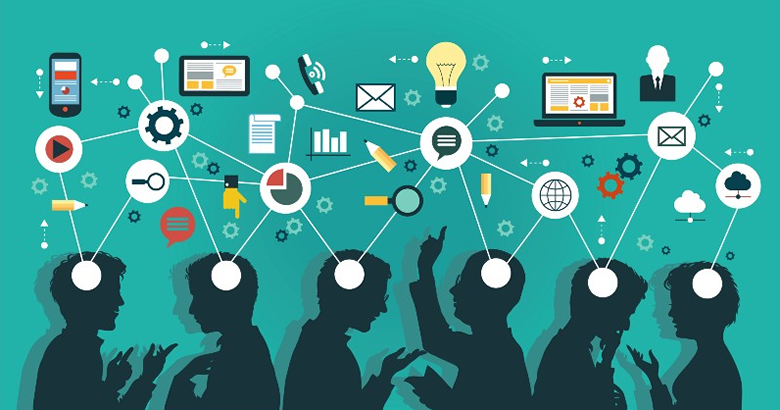
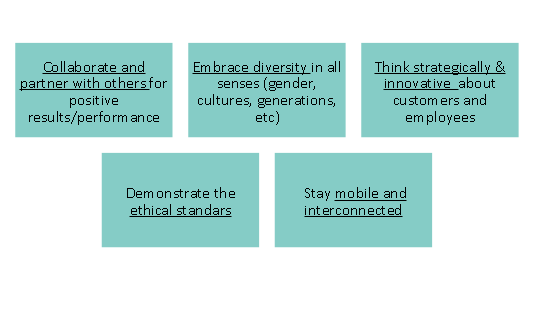
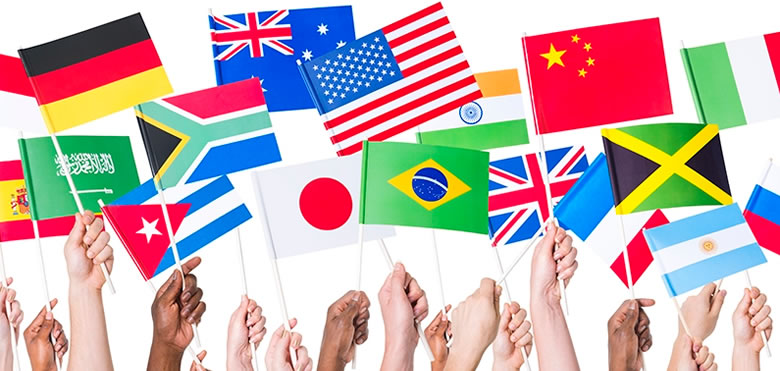

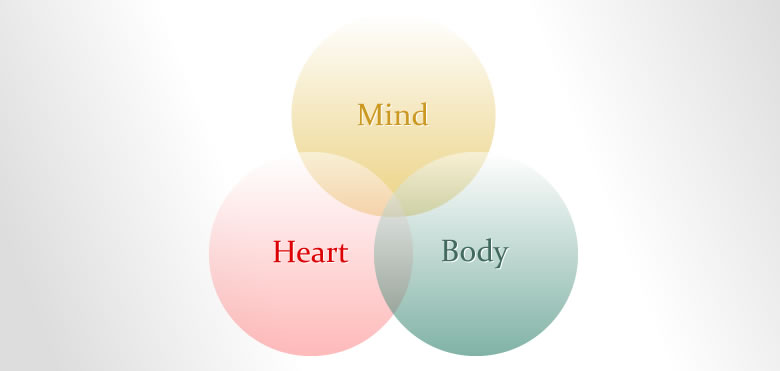
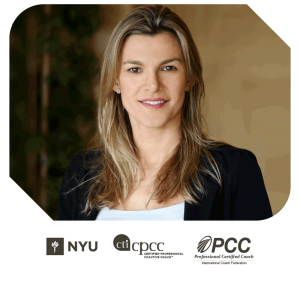
Recent Comments